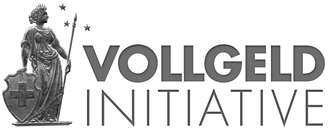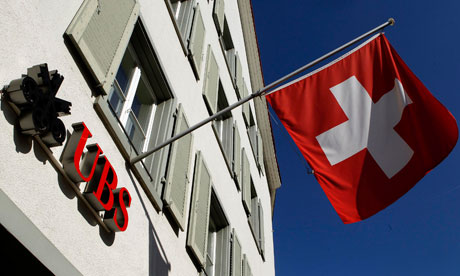On Sunday 10 June 2018, Switzerland’s electorate voted on a referendum calling for the country’s commercial banks to be banned from creating money. In a country world-famous for its banking industry, this was quite an interesting turn of events. Known as the Sovereign Money Initiative or ‘Vollgeld’, the referendum was brought to the Swiss electorate in the form of a ‘Popular Initiative‘. The Sovereign Money referendum proposed that commercial banks in Switzerland should no longer be allowed to create money out of thin air as they currently do, and that in future only the Swiss central bank should have the power to create money. Sovereign money as a concept refers to money issued or created by a State or central
Topics:
Ronan Manly considers the following as important: 1) SNB and CHF, commercial bank loans, commercial banks, Cryptocurrencies, Featured, Federal Council, fractional reserve, London gold market, Monetäre Modernisierung, money creation, newslettersent, popular initiative, Sovereign money, Swiss Federal Constitution, Swiss Franc, Swiss National Bank, Swiss referendum, Switzerland, Uncategorized, Vollgeld
This could be interesting, too:
Claudio Grass writes The Case Against Fordism
Nachrichten Ticker - www.finanzen.ch writes Die Performance der Kryptowährungen in KW 9: Das hat sich bei Bitcoin, Ether & Co. getan
Nachrichten Ticker - www.finanzen.ch writes Wer verbirgt sich hinter der Ethereum-Technologie?
Marc Chandler writes March 2025 Monthly
On Sunday 10 June 2018, Switzerland’s electorate voted on a referendum calling for the country’s commercial banks to be banned from creating money. In a country world-famous for its banking industry, this was quite an interesting turn of events.
Known as the Sovereign Money Initiative or ‘Vollgeld’, the referendum was brought to the Swiss electorate in the form of a ‘Popular Initiative‘. The Sovereign Money referendum proposed that commercial banks in Switzerland should no longer be allowed to create money out of thin air as they currently do, and that in future only the Swiss central bank should have the power to create money. Sovereign money as a concept refers to money issued or created by a State or central bank.
Popular Initiatives
The initiative was launched and advocated by Swiss group called Monetäre Modernisierung (MoMo) which was established with the goal of bringing monetary reform to Switzerland in the form of a sovereign money proposal. According to the proponents of the proposal, the initiative was launched as a reaction to the financial crisis of 2008 and 2009, and the increasing levels of commercial bank created both public and private debt that have taken place since then.

Based on the official results of the Vollgeld referendum announced on Sunday afternoon, 24.3% of the turnout voted in favour of the initiative, with 75.7% of voters against. As opinion polls in advance of the referendum had suggested such an outcome, a majority endorsement of the Sovereign Money proposal had not been expected. However, with 1,821,835 valid votes cast in the referendum, 442,387 Swiss citizens did endorse the proposal, which is a sizeable number, and shows that at least in Switzerland, there is increasing unease about how money is created in today’s fractional reserve banking systems, and a growing unwillingness among the Swiss public for commercial banks creating money out of thin air.
With one of the most effective systems of direct democracy in the world, Switzerland is known for its frequent referenda on diverse aspects of Swiss law, and Swiss Popular Initiatives allow petitions to be activated by Swiss citizens to propose law changes. While there can be cantonal and communal popular initiatives in Switzerland, the Sovereign Money referendum was an initiative at the federal level, aiming to change wording in the Swiss Federal Constitution.
For a Federal popular initiative in Switzerland to get to the referendum stage, the initiative’s proponents must collect 100,000 valid supporting signatures from the Swiss electorate within an 18 month period. In the case of the sovereign money initiative, this signature collection exercise was completed in December 2015 when over 111,000 valid signatures were collected and submitted to the Federal Government enabling the proposal to move forward. Many Swiss popular initiatives never get beyond the signature collection stage as they do not attain sufficient support among the electorate. Therefore, the success of the sovereign money initiative in gaining strong initial support also shows that there was an appetite among the Swiss population to raise the commercial bank issue in the form of an official referendum.
As it was essentially proposing a ban on fractional-reserve banking by commercial banks and a return to a more sound money system, the sovereign money Initiative had garnered significant attention in the Swiss financial media in the run-up to the vote, and brings to mind a Swiss referendum which was held in 2014 on the subject of Switzerland’s gold reserves and its storage locations, which also gained similar widespread public attention at the time.
However, as the Swiss Federal Council (Government), the Swiss Parliament and Switzerland’s central bank, the Swiss National Bank (SNB), had come out against the sovereign money proposal, much like they did in the Swiss gold referendum in 2014, the positions of the establishment institutions of State undoubtedly helped sway Swiss public opinion away from voting in favour of the sovereign money proposal. Other vested interests such as the Swiss bankers Association, also, predictably, rejected the initiative.
Out of Thin Air
Although most people aren’t aware of it, the majority of money in today’s global financial system is created not by central banks, but by commercial banks. These commercial banks create money in essentially unlimited amounts when they lend money into existence, in other words, when they provide credit and create debt, which they then call an ‘asset’ on the asset side of their balance sheets.
When commercial banks create money via lending on the asset sides of their balance sheets, they also create deposits. As liabilities of a commercial bank, these deposits are only fractionally backed by the bank’s assets, hence the term fractional-reserve banking.

According to sovereign money advocates, electronic money or ‘book money’ created by commercial banks and recorded in commercial bank accounts comprises about 90% of Switzerland’s money supply, with only about 10% of the Swiss money supply made up of legal tender issued by the Swiss central bank. They also maintain that commercial bank creation of money is not constitutional, since Article 99 of the Swiss Constitution states that “The Confederation is responsible for money and currency“.
In summary, the Vollgeld Initiative called for the following:
- Swiss commercial banks should no longer be able to create their own fiat currency out of thin air, i.e. be unable to create deposits through lending money created out of thin air.
- Only the Swiss central bank should be able to issue electronic money to back deposits. This would mean that the SNB would have exclusive responsibility for all money creation in Switzerland, both cash in circulation and electronic money in commercial bank accounts.
- Commercial banks should only be able to lend money that is already in existence, for example money long-term savings accounts, money market funds or funds sourced directly from the SNB.
- The central bank should be allowed to issue new money debt-free into circulation by issuing it to the Swiss Confederation, cantons, local authorities and citizens.
According to the Sovereign money advocates, commercial bank money creation leads to a number of problems that affect the real economy, such as credit bubbles which accentuate credit boom and bust cycles, and also excessive inflation. Commercial banks also profit both from their ability to create loans out of thin air and from their ability to create money for their own financing needs. This gives the banking sector an unfair advantage (i.e. a privilege) vis-a-vis other sectors of the economy.
A return to a fully sovereign money creation process, would, according to the initiative’s adherents, lead to a more stable banking system, would prevent asset bubbles, would prevent commercial bank runs, bailouts, and bank collapses, and would prevent the need for deposit insurance protection, since all money would be central bank issued money and deposits would not be fractionally-backed. The Vollgeld backer’s also said that if the SNB had a monopoly on money creation, it would profit from seigniorage, i.e. the ability to create valuable money at a very low-cost. Currently by not creating most of the money in the Swiss economy, the SNB foregoes these profits of seigniorage.
The Swiss central bank responded to the Vollgeld initiative in typical central bank fashion, citing heightened risk, more uncertainty, tightened credit conditions, increased inefficiencies from a sovereign money system, and a reduction of monetary policy tools and flexability. Some of these concerns may have some validity, some may not.
If the Vollgeld motion had been passed, it would undoubtedly have led to short-term volatility in the Swiss banking system and in broader currency markets, and longer term unease in other country’s banking sectors, out of fear that there would be a growing call for similar changes elsewhere. But as no country has yet tried a return to a sovereign money system, its unclear how much of a risk such a change would entail.
It is probably true that if all money was created by a central bank, then that central bank would be less effective in using interest rates to regulate inflation (via the level of bank lending), and would have to concentrate on targeting the quantity of money in circulation (monetary targeting). That, says the SNB, would be a regressive step.

The Results of the Referendum
Swiss federal popular initiative referendas are based on the concept of a ‘double majority’, where for a referendum to pass, a majority of votes overall have to be in favour of the proposal, and the voting in a majority of Swiss Cantons has to also be in favour of the proposal. Although there are 26 cantons in Switzerland, due to historical splits, six of these cantons are considered half cantons in terms of electoral power, so there are 20 full cantons, and the equivalent of a further 3 full cantons, making 23 cantons in total.
According to the referendum results on the Swiss Confederation website, out of 1,821,835 valid votes cast in the referendum, a total of 442,387 votes (24.3%) were in favour of the sovereign money initiative, while 1,379, 448 votes (75.7%) were against. Overall, all 26 cantons (and 23 equivalent cantons) voted against the initiative, with nearly all cantons defeating the motion by a 3 to 1 majority, in other words between 70% to 80% of voters voted ‘No’ to the proposal. By the same token, approximately 20% – 30% of voters in nearly all cantons voted ‘yes’ to the proposal.
The turnout for the vote was quite low, at only 33.8% of the electorate across Switzerland. For these popular initiative votes, many in the Swiss electorate cast their votes in advance by postal vote, so the results are usually known rapidly soon after voting has closed.
Reaction
In response to the referendum results, the Swiss National Bank (SNB), which had come against the referendum’s proposal, released a short statement saying that:
“The adoption of the sovereign money initiative would have made it considerably more difficult for the SNB to fulfill its mandate. With conditions now unchanged, the SNB will be able to maintain its monetary policy on ensuring price stability”.
It was not surprising also that the Swiss Bankers Association also welcomed the outcome of the referendum, calling the sovereign money plan a ‘radical alteration of the monetary system‘:
“The Swiss electorate has clearly rejected a radical alteration of the monetary system. The existing monetary and financial system functions well and is stable. The Swiss Bankers Association (SBA) welcomes the decision of the people and the cantons.
In reaction, the Sovereign Money Initiative’s backers remained resilient saying that:
“Despite the campaign of confusion and fear run by our opponents and the misinformation provided by the Federal Council and the Swiss National Bank…[the result] is a respectable outcome and shows that many Swiss people have realised that the creation of money by private commercial banks leads to numerous problems.”
“It is not acceptable that private commercial banks continue to jeopardise our prosperity by creating money out of nothing. In addition, technological developments such as crypto currencies will pose major challenges to the Swiss monetary system and the global economies.”
“Many of those voting ‘No’ did not vote on the Sovereign Money Initiative, but on the distorted picture of it that was conveyed to them by the authorities and the banking lobby. The result of the referendum cannot therefore be interpreted as approval of the privatisation of Switzerland’s money creation.”

Conclusion
Although the average person on the street knows little or nothing about how money is created in contemporary financial systems and mistakenly presumes that all money is central bank money, the Swiss sovereign money initiative is fascinating in that it has raised awareness, at least in Switzerland, as to how fractional reserve banking systems really operate, and how commercial banks create most money in the financial system out of thin air.
In 2016, ‘Monetäre Modernisierung (MoMo)’, the backers of the Vollgeld initiative, highlighted that a survey in Switzerland had found that 73% of the Swiss population mistakenly thought that the Swiss State or Swiss central bank was the creator of the majority of Swiss money and not, as is really the case, the Swiss commercial banking sector.
However, in a country with a total electorate of approximately 5.3 million, the ability to gain 110,000 signatures to advance the sovereign money proposal to referendum stage shows that the Swiss are presumably now becoming more informed about how the money creation system actually works. By the same token, a sizeable 440,000 Swiss voters backed the Sovereign Money proposal, which will no doubt cause concern in the upper echelons of the Swiss National Bank, and Swiss Bankers Association.
Since the sovereign money initiative would have fully centralised the money creation process with the SNB, it lies at the opposite end of the scale to fully decentralised forms of money such as cryptocurrencies. But what sovereign money and cryptocurrencies do have in common is that they both cut commercial banks out of the money creation process, and commercial banks could now in theory find themselves fighting on a number of fronts. With decentralised crytpocurrencies also aiming to cut central banks out of the equation, and with some central banks responding by alluding to the issue of their own cryptocurrencies, these central bank cryptos could be another form of sovereign money that the commercial banks may in future need to take account of.
Discussions of fractionally-backed banking systems also bring to mind the fractionally-backed system of trading which operates in the London Gold Market, where vast amounts of synthetic gold which do not exist are traded and cleared each day in unallocated accounts maintained by the bullion bank members of the London Bullion Market Association (LBMA). But unfortunately, the London Gold Market remains a protected enclave, protected from the disruptive scrutiny of direct democracy, and with little hope even that the financial media would dare to investigate why a gold market runs a leveraged fractionally-backed gold trading system.
Ronan Manly
E-mail Ronan Manly on:
Tags: commercial bank loans,commercial banks,Cryptocurrencies,Featured,Federal Council,fractional reserve,London gold market,Monetäre Modernisierung,money creation,newslettersent,popular initiative,Sovereign Money,Swiss Federal Constitution,Swiss Franc,Swiss National Bank,Swiss referendum,Switzerland,Uncategorized,Vollgeld

